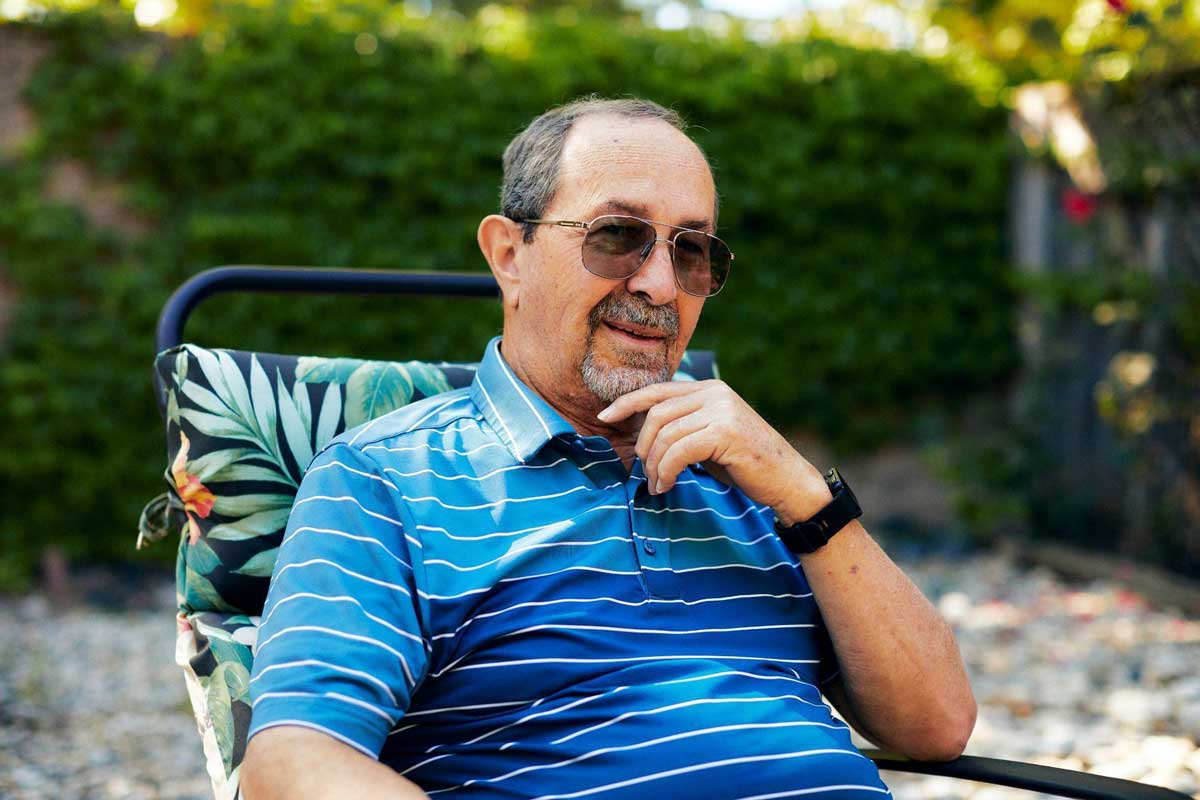The best way to beat cancer is to find it as early as possible—when more treatment options are available.
Currently, recommended cancer screenings exist for only 5 types of cancers. These are widely used screenings, like mammograms or colonoscopies. Yet these screenings only look for signs of single cancers, leaving hundreds of types of cancer unscreened, which often go unnoticed and are found in later stages when symptoms appear.
Now screening for more cancers is possible with multi-cancer early detection tests that rely on a blood sample to detect cancer. If cancer is detected, additional tests like blood work or imaging are done to diagnose cancer.
One of these multi-cancer early detection tests is the Galleri® test. With a simple blood draw, the Galleri test can detect a signal shared across over 50 types of cancer including some of the fastest spreading and deadliest cancers such as pancreatic and ovarian.

Patient Jim said he was perfectly healthy and had no symptoms. He had a colonoscopy and other cancer screenings and had no reason to think that he had any cancer. He was introduced to the Galleri test and shortly after learned that a signal associated with cancer was found. His Galleri test was followed up with a CT and PET scan confirming pancreatic cancer.* His surgeon told him he was probably one of the luckiest people she had ever met since she rarely sees stage 2 pancreatic cancer because there are no symptoms and it is typically found late. Jim received chemotherapy and radiation and was happy to learn his cancer had not spread. After successful treatment, he is back to enjoying life a lot more.

Clinical studies with over 20,000 participants supported the development of the Galleri test. These clinical studies were conducted across the country, including leading cancer institutes like the Cleveland Clinic and Memorial Sloan Kettering Cancer Alliance.
The Galleri test is recommended for use in adults with an elevated risk for cancer, such as those older than 50. Age is the most critical factor for developing cancer. The average rate of cancer in adults over age 50 is 13 times higher than in adults under the age of 50. The Galleri test is available by prescription only and can be requested through your healthcare provider or online at galleri.com through an independent telemedicine provider. The Galleri test is not recommended for individuals who are pregnant, 21 years old or younger, or undergoing active cancer treatment.
Not all cancers can be detected in the blood or by the Galleri test. The Galleri test does not replace other cancer screening tests. Adding the Galleri test to routine cancer screenings could improve the chance of finding more cancers early.
Read more about the breakthrough science of multi-cancer early detection and the Galleri test at galleri.com.
To learn more about requesting the Galleri test, click here.
*Based on a clinical study of people ages 50 to 70, around 1% are expected to receive a Cancer Signal Detected result which includes predicted Cancer Signal Origin(s). After diagnostic evaluation, around 40% of people are expected to have a confirmed cancer diagnosis. The overall sensitivity in study participants with pancreas cancer was 83.7% (61.9% for stage I, 60.0% for stage II, 85.7% stage III, 95.9% stage IV).
Important safety information
The Galleri test is recommended for use in adults with an elevated risk for cancer, such as those aged 50 or older. The Galleri test does not detect all cancers and should be used in addition to routine cancer screening tests recommended by a healthcare provider. Galleri is intended to detect cancer signals and predict where in the body the cancer signal is located. Use of Galleri is not recommended in individuals who are pregnant, 21 years old or younger, or undergoing active cancer treatment.
Results should be interpreted by a healthcare provider in the context of medical history, clinical signs and symptoms. A test result of “Cancer Signal Not Detected” does not rule out cancer. A test result of “Cancer Signal Detected” requires confirmatory diagnostic evaluation by medically established procedures (e.g. imaging) to confirm cancer.
If cancer is not confirmed with further testing, it could mean that cancer is not present or testing was insufficient to detect cancer, including due to the cancer being located in a different part of the body. False-positive (a cancer signal detected when cancer is not present) and false-negative (a cancer signal not detected when cancer is present) test results do occur. Rx only.
©2022, GRAIL, LLC. ALL RIGHTS RESERVED. GALLERI IS A REGISTERED
TRADEMARK OF GRAIL, LLC.

